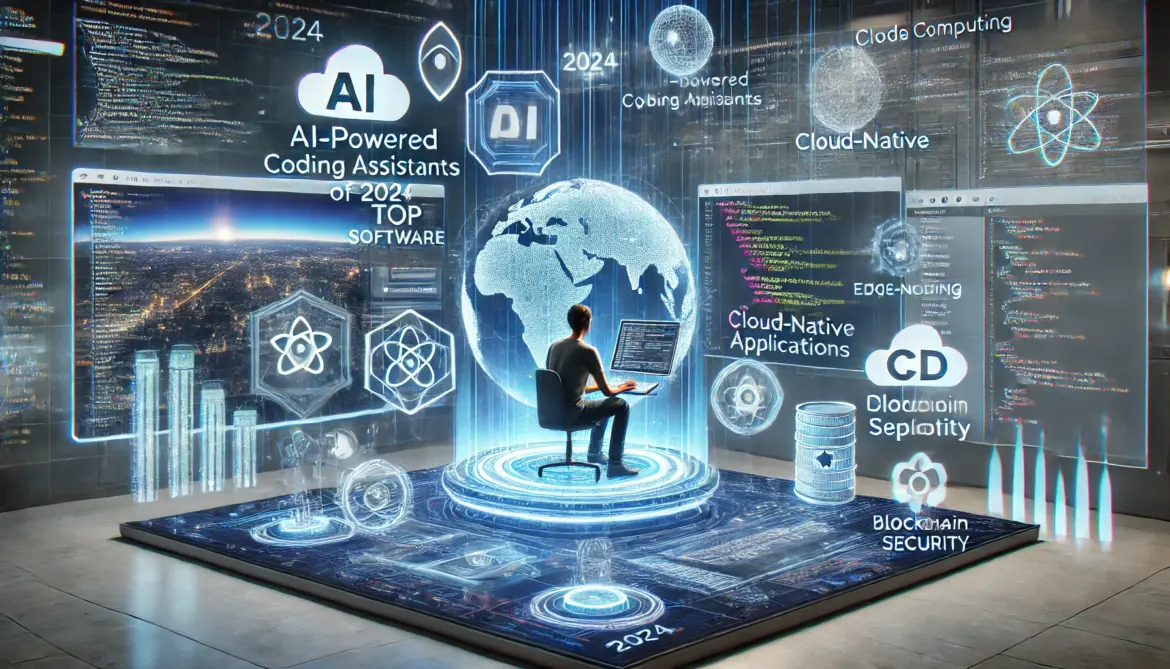Technology keeps changing, and software development changes with it. In 2024, we’ll see several key trends shape how people create, deploy, and use software. Here are the top 10 trends to keep an eye on:
1. AI and Machine Learning Lead the Way
Artificial Intelligence (AI) and Machine Learning (ML) now play a crucial role in software development. These technologies help automate tasks, boost decision-making, and improve user interactions. AI-powered tools let developers code faster, find bugs more , and forecast future trends. This year, we’ll see more AI coding helpers and automated testing tools pop up.
Key terms: AI in software, Machine Learning applications, AI tools for coding
2. Low-Code and No-Code Platforms on the Rise
Low-code and no-code platforms are causing a revolution in software development by allowing users with minimal coding experience to build applications. These platforms speed up app development and make it more accessible helping businesses to test and launch solutions. In 2024, experts predict a significant increase in their use across various industries.
Key terms: Low-code development, No-code platforms, App creation without coding
3. Heightened Focus on Cybersecurity
As cyber threats grow, software security becomes vital. Developers now focus on advanced security measures. These include encryption safe coding methods, and tracking threats as they happen. Putting cybersecurity into all stages of software creation will stop data leaks and system weak spots.
Key terms: Cybersecurity in software Safe coding methods, Software security trends
4. Taking on DevOps and CI/CD Methods
DevOps and Continuous Integration/Continuous Deployment (CI/CD) are now key to modern software creation. These methods help teams work together well and put software out . This cuts down on mistakes and gets software to market faster. More companies now use these approaches to make sure software comes out smoother and more .
Key terms: DevOps practices, CI/CD pipelines Automated software deployment
5. Cloud-Native Development Has an Impact on the Industry
Cloud-native development is now the norm as companies move to cloud-based answers. Developers use microservices and containerization to build scalable adaptable apps made just for cloud settings. This shift allows organizations to boost performance and cut infrastructure expenses.
Key terms: Cloud-native applications, Microservices, Containerization
6. Edge Computing Sees Wider Adoption
Edge computing has a significant impact on data processing by cutting down delays and boosting real-time performance. When data gets processed closer to where it comes from, edge computing improves apps that need quick responses, like IoT and smart devices. More industries will adopt this tech to speed up and streamline their operations.
Key terms: Edge computing Real-time data processing, IoT and edge technology
7. Blockchain Technology Beyond Cryptocurrency
Blockchain technology is growing beyond just cryptocurrency and is becoming a useful tool to make transactions secure and clear. Fields like finance, supply chain, and healthcare are using blockchain to exchange data , check identities, and create decentralized apps (dApps).
Key terms: Blockchain applications Decentralized solutions, Blockchain security
8. Advances in User Experience (UX) Design
UX design plays a key role in software development. The year 2024 will see a push to create easy-to-use custom-made, and reachable user interfaces. Companies will put more money into UX studies and design to boost user involvement and happiness.
Key terms: UX design trends, User-friendly interfaces Accessibility in software
9. Integration of Augmented Reality (AR) and Virtual Reality (VR)
AR and VR are now more common in software apps giving users deep experiences in games, training practice, and working together from far away. In 2024, we’ll see more new AR and VR answers across many fields.
Key terms: AR and VR technology Immersive experiences, AR/VR applications
10. Quantum Computing Takes Big Steps Forward
Quantum computing, though still in its early days, is making big leaps. This tech has the power to cause a revolution in fields like code-breaking scientific modeling, and solving complex problems. As research in quantum computing moves ahead, it could change how we handle tough calculations down the road.
